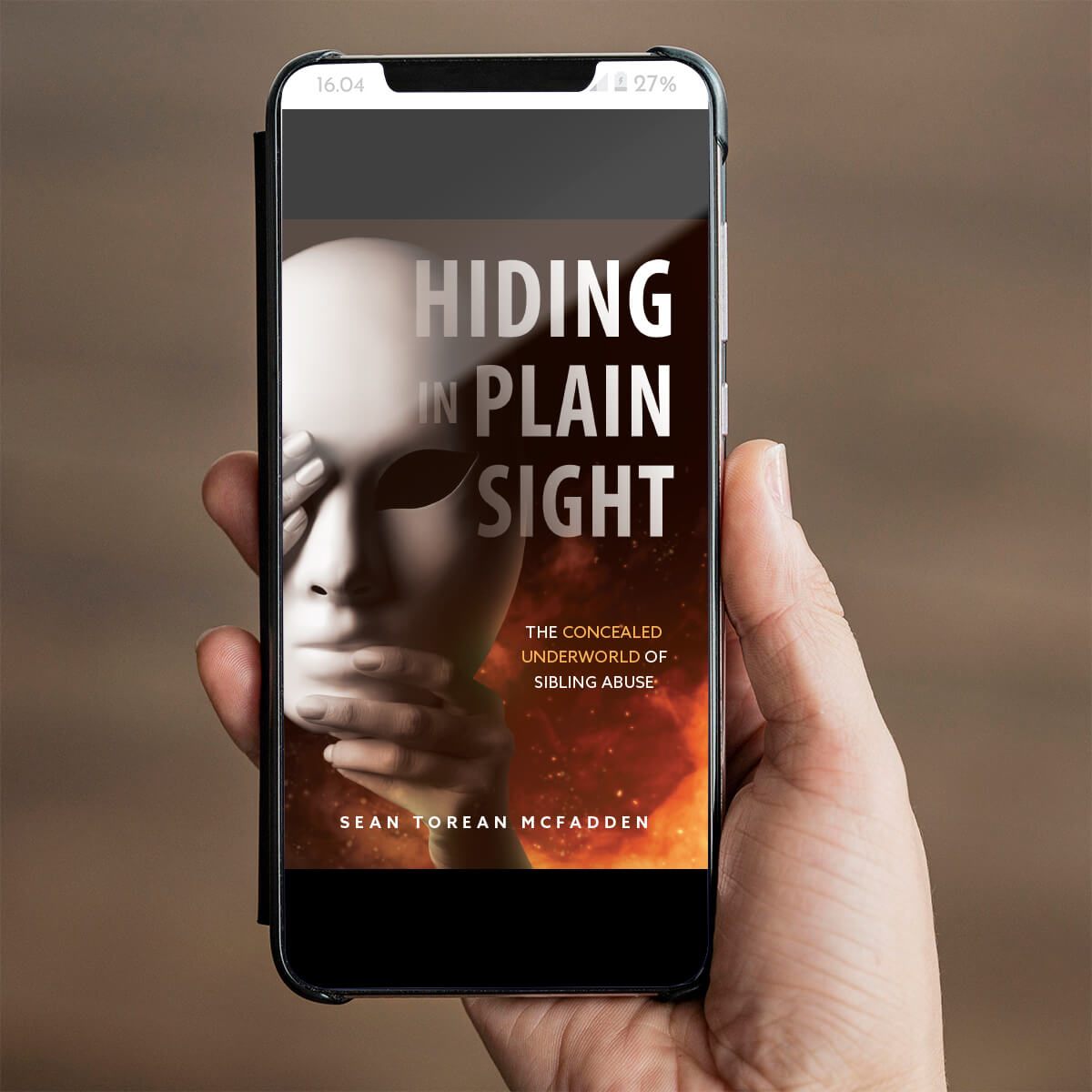Please click below to read each chapter synopsis.
Happy families are all alike; every unhappy family is unhappy in its own way” Leo Tolstoy
Thank you for coming here to my website. These synopses offer clarifications to my book, and provide additional information to fill-in any gaps. I have added a Helpful Research tab at the navigation bar to share my research and studies with you. I know you will find it all beneficial and informative.
I would be grateful for your kind consideration in a book review on your purchase website, or via my contact page.
The philosophical and religious quotes I use in every Chapter Introduction within the book and those mentioned on my website are significantly important to me for two reasons. First, they were appropriate and a good fit to the specific content and secondly, I can attest unequivocally to you that they work; they worked for me and still do. I live by them. In that sense, they represent truth in my life, and moreso, since I believe they are also universal, I have no reason to doubt they would not work for you in your life. They obviously existed for good reason in the minds of those noble men and women of insight and character who initially spoke them throughout history.
Back to the story, planning to visit my family and for them to meet my wife was coordinated by phone with my mother. She and I worked out dates and details. It was she who shared her belief that the room my brother and I slept in as tots would be too small for us both, and my sister’s room for our visit would be more comfortable. What I did not know was that my mother did not inform my sister of that detail. I never gave any thought that she would not tell her, so my wife and I were both shocked when the turn of events occurred upon our arrival. This was an unknown sample to me, at the time, that major communication failures existed in my family.
On Page 5, I mentioned the comment my wife made regarding my nephew, a tiny baby at the time in that he appeared to look like a mutual friend of myself and my brother that we grew up with in our early teens. I recall looking at both my brother and sister-in-law and was unaware to me at the time what micro-expression smirks meant—both to each other followed by another split second mutual facial expression of seriousness–all in the span of just a quick several seconds. Visioning that at the time I knew just as an “odd” gesture with an instinctively curious behavior that didn’t feel quite right. I came to understand this as “micro-expressions” many years later, from my research and extensive study on deception detection, and lie-catching strategies and techniques. There are also many internet sources that provide clarity on what micro-expressions are, and I believe this is a critical knowledge base for all people to become intimately aware in order to more readily detect lies and deception.
On Page 21, I stated I was beginning to see more severe underlying problems in my family, I just did not know how deep or what they were. This was new territory for me. On those occasions where a healthy-minded person in this environment would be posed to ask questions as I was inclined to, clearly it was not the right thing to do more often than not to my protagonists. You can tell when it’s best to keep quiet and observe, which I had to do or else face the consequences. On those occasions when I did ask a question about something regarding the lie, deception, or behavior, the doorway to hell opened.
On Page 25, I stated confronting my family members on any aspect of their negative behavior would be rewarded with smirks, deflections, projections, anger, and accusations that I was crazy and in need of help, or the behavior would be swept into silence “under the psychological rug”–a common term for avoiding accountability.
Abusers and liars want to sweep their behavior under the psychological rug through avoidance or silence–it cannot be spoken of because it reveals and exposes. Psychologists and psychiatrists’ term this in the clinical sense as a process called “pseudomutuality” (see the Helpful Research tab).
On Page 42 under the heading “An Admission”, I write about my apology to my ex-wife over lunch, and acknowledging to her my failure to “see” what she did and to feel what she felt at that time. It was not really a failure in one respect, as I was not self-aware or knowledgeable enough to realize my own “conscious and unconscious biases”. The awareness of these two biases was a major revelation to myself because when you are aware of your biases, you are more honest with yourself–and your mind is more open.
What I did, unknowingly, when I blew off the tantrum early-on upon our visit as a passing thing, was to further abuse my wife. I “unconsciously” told myself my family member was just having a bad day, and it’s just a passing thing, or whatever it was that compelled me to dismiss the raging.
This mind-set applies equally whether to a wife, husband or anyone related to you with an emotional attachment. “My wife/husband/sister/brother, etc., “would never do that…oh no….never”, is an unconscious bias. Stay aware of them and you will do yourself and people you love a huge favor, and it will help you to save yourself and your relationship(s).
Since then and still today, I am constantly self-checking myself for both of these biases in situations in my life that I, or people I love, are directly involved in. Doing so at the very least allows me to remain honest with myself, and just as important, raises my internal defenses against self-denial and self-deception.
Envy, jealousy and greed were pronounced in my brother, while hubris was always demonstrated by other members of my family.
In the first sentences of Chapter 6, I stated I used “conflict avoidance” as my primary strategy as much as possible to negate conflict. By contrast, in a later Chapter I talk about conflict avoidance among those who may be afflicted with a substance addiction of some kind. Speaking purely for myself, in all cases of conflict avoidance and regardless of the reasons, I can only see one common denominator: Fear.
Fear-based motivation is real. It invokes an automatic, internal “fight or flight” instinct often called “deer in the headlights syndrome”. One (or more) of our basic safety, security, or survival needs are determined to be at grave risk. Not only is fear considered a more powerful motivator than love, it is considered the most powerful and potentially negative human motivator of all the emotions.
It paralyzes rational thinking. The Amygdala, as the brain’s decision-maker, goes haywire. All of the brain’s resources are diverted from usual, normal tasks to solely performing survival and safety functioning with fear as the sole motivator. The reality of an event in terms of present and future danger is detected and survival is automatically prioritized above all else. Rational decision-making is compromised as well as normally predictable and responsible behavior. In a later chapter synopsis (Chapter 20), I will discuss a real-life event that I am aware of regarding fear, the fight or flight syndrome, and the unmistakable results that add credence to my views, which come from personal knowledge, and from witnessing fear in motion. My supporting research and therapeutic sessions with experts in the field of forensic psychiatry, confirm this.
The events in this chapter were a turning point for me on many fronts. Most notably, that which lurked in the minds of my family was even more pronounced and my level of awareness was significantly higher. It was during these years that the level of revulsion and nauseousness would increase and be prevalent in me. It was Dr. Peck’s works that proffered the validity of those feelings I experienced—and are normal when in the presence of evil. Revulsion and disgust are normal feelings in healthy people when in the presence of such people. If you feel these in your own experiences, they are a warning that you’re in the wrong place, and if you can’t help being in the wrong place, keep your awareness high and be on guard. And most importantly, never share personal information with them about yourself, and especially not your relationship.
It was crucially important for me, and should be a consideration for you in your life, to educate yourself in identifying people with respect to specific behavior—men and women, family or not, who mindlessly violate normal human virtues and personal boundaries while professing a claim to possess those qualities and values. Studies and professional works will help you “see” people behind the mask. Some of which have a very intense sexual relationship with satan, and thus full access to its toolbox and weaponry.
One more thing I concluded is that people who mindlessly employ rage (versus anger) in controlling people or situations, or attempting to, cannot do so without creating their own reality. They use emotional or psychological force, or both, to instill fear and to ensure it’s your reality too. Creating ones own version of truth suits the objectives to subjugate and control (and they actually believe their version), without a thought or care as to the consequences of their behavior to others. It’s all about power and control.
I guarantee my brother did not tell other family members (in his inner circle) what he was doing, and vice versa with other family members (their inner circle). This was crucial to projecting the image to each other and to everyone that they were actually and singularly trying to resolve the issues.
In summary, in your life: read and understand, study, learn, then correlate behavior with research and build, piece-by-piece, a very complex puzzle that you need to see. This was key for me and will be for you too, to know not so much who it is you’re dealing with—but what.
I have to admit that I actually did believe holding up a mirror up to my siblings, albeit with a letter to reflect back to them their behavior would have lit the lightbulb. What I discovered was that for people who are severely toxic, that electrical circuit is dead–short-circuited long ago.
Healthy-minded people–honest and good people with integrity in their character, acknowledge and with introspection genuinely demonstrate in words and deeds a situation they created (unintentionally), and prove that they are not just redeemable, but they demonstrate remorse. Good people strive to correct the damage caused and right any wrongs, first by an admission of remorse, and then to rebuild trust if it was damaged. Toxic people, when confronted, on the other hand, will endeavor to deny and hide (which proves intent)…and thereby create even more long-term and permanent destruction of trust.
Should revenge or vindictive transgressions, or even passive-aggression develop from the truth, you should have a pretty good idea you’re in the presence of someone worthy of caution.
You can only give someone the benefit of any doubt so many times before the handwriting is clearly on the wall. Fake remorse (or no remorse), false promises and the like will only lead you down a path you wished you avoided. The restraining order I considered was more in my train of thoughts now than before, and you read about the results.
You can care enough about someone, and be passionate about an issue to “hang in there” in hopes of reaching someone (getting through), but for narcissistic people and other toxic people, you cannot save them from themselves. You have no option but to save yourself.
There is nothing significant I can add to this Chapter for clarifications, but feel free to reach out via my contact form for any questions or clarifications you desire. I will respond as soon as I am able to all meaningful queries.
One of the most prevalent elements I noted was how much I pissed off my toxic family members with my calm and relaxed composure of the truth–on those occasions when I could be in the mindset of emotional calm. It was when they could not trigger anger in me and I remained cool when the rage would come. Don’t get me wrong, it wasn’t easy…but it was joyfully entertaining at times to watch the veins in their faces become pronounced and the venom on their faces consume them with my relaxed manner in the face of their abuse. I also had to be careful, for the rage from these moments made them extremely volatile.
Money is a major motivator for the evil. I don’t have to give any additional examples than I have in Chapter 14, and beyond what you already know to be true. Feel free to share your thoughts on this.
One of the most difficult things you will have to do when dealing with a bully of any type in your family is to maintain your sense of reality and your self-control. Many who have not been able to muster that kind of strength have succumbed to retaliation, and are in prison for it.
Obviously, family member or not, never believe a compulsive, habitual liar—they will tell you what they want you to hear, and only so they can continue on with their behavior, either overtly or secretly—or both, to subvert you or control you.
The Chapter 17 intro by Nietzsche is one of my favorites, as it conveys an element of life that rings true. But as with many things, is open to interpretation. To me, it means simply that if you choose to battle with monsters, make certain you don’t become one in the process. The abyss in this quote, in my view, means dark and unknown elements within the heart, mind and soul that represent some of the worst parts of humans. As I say throughout my book, I had to be on my guard with constant self-checks. Little did I know at the time it was the same as saying “when fighting the monsters in my life, I had to ensure I didn’t become like them”. Otherwise, I may have become somewhat of a moral saint who saw nothing but monsters, when I in fact had become one. But how does one know within themselves if they are like, or becoming like, the monsters they fight? If your self-control is tested, the abyss is staring at you.
In my early therapeutic sessions with Jim, recall I said on Page 17, that my therapist “…opened the palm of one hand fully at forehead level, and in slow motion moved it downward his torso while describing an invisible shield”. He said, “Your father found a way to shield himself. He doesn’t absorb the bad; it bounces off him. You, on the other hand, take in the personality and likely other parts of family members’ and then fight the urge from attack to retaliate. You absorb it and then must resist becoming like them. Resisting the urge to provoke hostility in you is a strength, but this is where the conflict in you arises.”
This is what staring into the abyss means in my view…when you feel like you’re becoming the monster. There will be a huge effort to resist if you have strength in your character. Know where your limits are and be extremely cautious. How strong you are will not become known until you search and gaze into the abyss, and it’s staring back at you.
Let’s face it. No one likes to be hated in any way by any one, but I give credit to Bette Davis in my chapter intro, because she makes a valid point. I also mention in this chapter that while I was in uniform, my mother treated me like a mother does to a son. As I said, I loved my mother, but hated the demons she gave safe harbor to in her mind. She wasn’t intrusive until I returned home, at which time she showed herself to be someone I did not know.
This period was also when I learned my mother’s brother was not biological. I try hard to live my life keeping my conscious and unconscious biases in check (so should you) and not making assumptions (they can lead to disaster), but I’ll stick my neck out on this one: you have to admit there was a reason why he first ensured she had no means of safe passage or escape before beginning his aggression. That is clearly premeditation. So, one cannot help but to wonder what he was feeling, and importantly—why. If you’re thinking, “What did she do to him?”, your insight is working just fine.
My sister bringing up the appointment with the doctor five years previous, and relating it to some form of attack was mind-boggling. But you have to consider the same thing my sister-in-law did with me over my wife’s comment, even after my divorce and for an entire year. These two issues were brought up and used to attack me, not because I did something wrong in either situation–but was a projection of their guilt and shame onto me that the truth was told. It still pissed her off after five years that it was she who angered this doctor with her lies–this great doctor who served humanity and helped so many in his devoted life. My only involvement was to put her in the position of coming under scrutiny, therefore, it was worthy of attack.
The doctor took my sister’s mask off, and it was my fault. My wife took off my sister-in-law’s mask with the comment about the baby, and that was my fault too that demanded endless apologies because it was my wife who said it.
One of the most prevalent and telling developments was my mother dutifully informing me that I did not ask her permission to renew my contract with the Air Force and reenlisted. This was a major development, and further confirmed my theory on her narcissism. Once again though, my father gave me what I needed for my heart on that day, and I gave him what he needed for his. The others in the family, by contrast, gave each other what they needed for their sadistic egos to survive and to thrive.
Remains in progress…please check back soon.
Bianca and I made it through my family, unlike others in my life, but this was I think partly because of the seeming transformation in the behavior of my mother and sister after my father died, and partly, and likely more probable, because she never met my brother and sister-in-law. We made it out alive!
Bianca was wonderful to my parents and got along well (as far as that goes) with my sister. She liked my sister she said, and she never did anything to harm her in any way. This was true. But one has to consider whether that change in behavior (polar opposite after so many years as an abuser) was from altruism, or was it a strategy for some future, self-serving purpose?
Bianca had difficulty comprehending the things I would tell her because what she “saw” (or was shown), were vastly different than my experiences. Bianca always held the hand of my mother and father when sitting with them–she was and is loving, gentle and kind. She was just that way, and it brought an air of peace to an unpredictable environment. Both of my parents were now aging in this chapter to the point where it was obvious the inevitable was looming. Nothing changed with my brother’s aggression, largely passive now as it was.
It was at this time my sister also revealed that any contact on my part to reach out to my niece and nephew would result in less than desirable consequences for her and mother, and was obviously a control tactic on my brother’s part—using them to keep me at bay—or else.
The term “Flying Monkey” (see the Helpful Research tab) is common in popular psychology to describe people who act on behalf of another to control a targeted individual. It comes from the Wizard of Oz movie where the Wicked Witch of the West used flying monkeys to carry out evil on her behalf.
The smear campaigns my family instituted–what they said to each other that was disparaging toward me–could not have been successful if they didn’t “believe” each other. Thus, the numerous calls by my brother followed by my sister, or vice versa in attacking me, and most all of their attacks as a family—made my family members individually each other’s flying monkey. In this chapter I mentioned a voice message (Page 329), that sounded possibly mechanical. Here it is:
In this final synopsis, the conclusion is perhaps what you gleaned long before the final paragraph.





